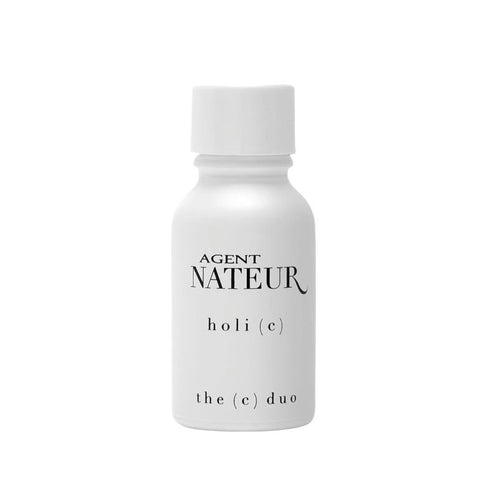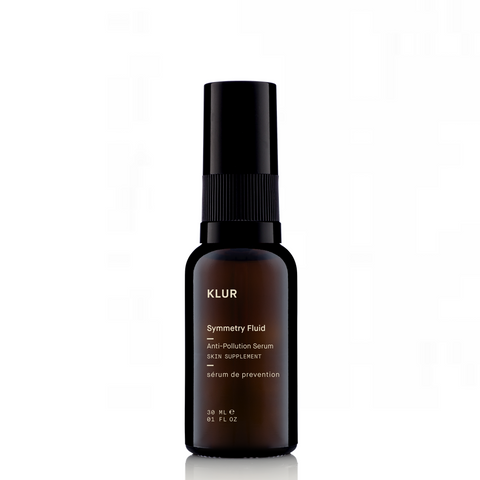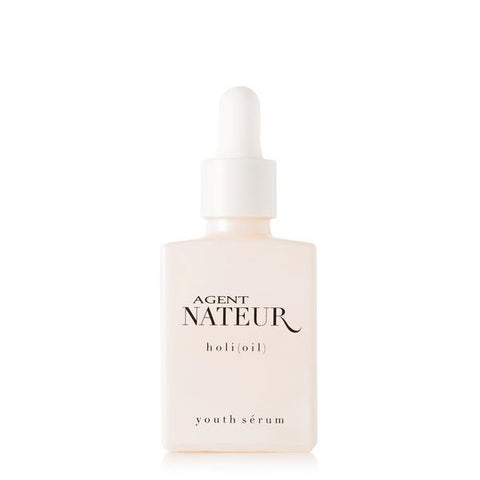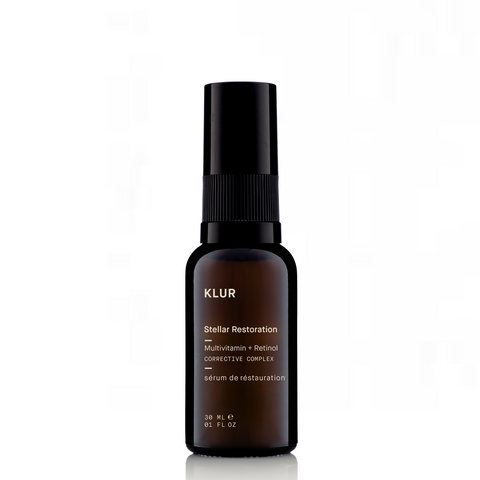Free shipping for HK orders HK$600+
Myths About Vitamin C
March 17, 2021
We have all heard and read about how Vitamin C is an amazing skincare ingredient——fights free radicals, stimulate collagen synthesis to prevent wrinkles and skin sagging, fades pigmentation, brightens skin, etc. Nevertheless, there are a lot of misunderstanding and misinformation about this celebrated ingredient. Let’s set the record straight once and for all!
Product Recommendation
KLUR
Brilliant Light Multi-Correction Repair Serum <- Click to shop
____________________________________
Myth 1: All Vitamin C Are The Same
Many products only state that they contain vitamin C, but fail to discuss which type of vitamin C is used in the formula. The truth is, there are many different forms of vitamin C, each having different impact on the skin.
For instance, L-Ascorbic Acid is the most potent form of vitamin C in skincare. However, it has to be at a pH level of 3.5 or lower for it to stay stable, otherwise it will oxidize very rapidly, rendering the product useless. By using such an acidic product everyday morning and night, the skin’s pH level will be affected, the lipid barrier will be damaged, and the skin’s delicate microbiome of bacteria that maintains a proper balance necessary for a disease-free environment will be disrupted. When this happens, the skin gets sick in the form of acne and dermatitis, amongst many others.
Sodium Ascorbyl Phosphate is a water-soluble vitamin C. It is the most stable, bioavailable form of vitamin C, and has the ability to penetrate the epidermis without causing irritation. Besides the standard vitamin C skin benefits, in an in vivo study, a 5% SAP lotion used for 12 weeks was found to give excellent results in 76.9% of acne patients, which is significantly higher than other prescribed acne products.
Other vitamin C derivatives include Ascorbyl Glucocide, a water-soluble, stable form vitamin C that can be used on all skin types for its antioxidant and skin-brightening properties, Magnesium Ascorbyl Phosphate, a water-soluble, thicker form of vitamin C known to calm skin and increase skin's hydration levels, and Ascorbyl Tetraisopalmitate and Tetrahexyldecyl Ascorbate, both being oil-soluble derivative of vitamin C.
This essentially means, if you’ve tried a vitamin C product and felt that it didn’t do much or caused irritation, do not write off vitamin C just yet. Chances are, there are other forms of vitamin C that will work for you.
Product Recommendation
AGENT NATEUR
holi(c) The C Duo <- Click to shop
____________________________________
Myth 2: Vitamin C Causes Sun Sensitivity
This misunderstanding probably is a result of how certain types of vitamin C can become highly unstable with sunlight. While vitamin C like L’Ascorbic Acid can oxidize very quickly if exposed to sunlight (others like Sodium Ascorbyl Phosphate don’t), it does not absorb sunlight. In fact, studies have shown that vitamin C, being a potent antioxidant, can protect the skin against UV-induced free radical damage.
In short, it is safe, in fact, recommended, to use vitamin C in the morning to protect the skin from free radicals, as well as in the evening to rejuvenate the skin.
Product Recommendation
KLUR
Symmetry Fluid <- Click to shop
____________________________________
Myth 3: The Higher The Percentage of Vitamin C The Better
As we said before, high concentration does not equal high efficacy in skincare. This is especially true with vitamin C, and particularly L’Ascorbic Acid. In fact, the higher the percentage of L’Ascorbic Acid in a formula, the more irritating it is for the skin due to its acidity.
In addition, overall formulation, absorbability and penetrability matter too! A product with a higher penetrability rate and lower concentration of vitamin C, will easily deliver more visible results than a product with lower penetrability and higher concentration of vitamin C.
Product Recommendation
AGENT NATEUR
holi(oil) Ageless Face Serum <- Click to shop
____________________________________
Myth 4: You Shouldn’t Use Vitamin C with Retinol, Niacinamide, or Acids
Guess what, yes, you can! It all comes down to which vitamin C derivative you’re using, and how it is used.
Retinol —— research has shown that vitamin C, a potent antioxidant, actually helps protect retinol from oxidization as it penetrates deeper into the skin. In other words, the anti-ageing benefits of the two ingredients can be magnified when used together! With that being said, it’s best to avoid using retinol with L’Ascorbic Acid at a high concentration, as this can irritate the skin.
Product Recommendation
KLUR
Stellar Restoration Corrective Complex <- Click to shop
Niacinamide —— vitamin C is shown to inhibit over-production of melanin, whilst niacinamide helps prevent the transfer of overproduced melanin within cells. Because the two work in different ways in tackling discoloration, using them together is especially great for tackling hyperpigmentation. Just avoid using both at a high percentage.
Acids —— avoid using them with L’Ascorbic Acid in the same routine, as the acidity of both can be highly irritating to the skin, but can be used on separate days. Better yet, use other vitamin C derivatives like Sodium Ascorbyl Phosphate.
Product Recommendation
Agent Nateur
holi(body) Ageless Body Serum <- Click to shop
Also in The Journal

The Hidden Culprits of Skin Aging: Autophagy Decline and Zombie Cells
January 07, 2026
Don't just mask aging—reverse it. Learn how clearing Senescent Cells and restarting Autophagy creates lasting youthful skin.

The Anti-Aging Gold Standard: How Retinol Reshapes The Skin
November 12, 2025
Learn why retinol is the gold standard for anti-aging, how it works, what similar ingredients exist, and some common myths and misconceptions.

The Gut-Skin Connection: The Path to Healthy Skin
October 26, 2025
Acne, eczema, rosacea, and sensitivity can all be linked to the gut health, and even gluten? Learn all about the connection between the gut and the skin.
+Recent Articles
-
The Hidden Culprits of Skin Aging: Autophagy Decline and Zombie Cells
January 07, 2026
-
The Anti-Aging Gold Standard: How Retinol Reshapes The Skin
November 12, 2025
-
The Gut-Skin Connection: The Path to Healthy Skin
October 26, 2025
-
The Secret to Reversing Skin Aging! How Growth Factors & Peptides Help Turn Back the Clock
October 13, 2025
-
The Best Ways and Times to Take Different Supplements
August 19, 2025
-
Luxury vs. Budget-Friendly Skincare Products——What Are Their Differences?
August 06, 2025
-
How to Prevent and Improve Post-Inflammatory Hyperpigmentation (PIH)
July 10, 2025
-
How to Prevent and Improve Post-Inflammatory Erythema (PIE)
July 08, 2025
-
The Ultimate Cleansing Guide to Improve Skin Conditions
June 03, 2025
-
Do You Have Sugar Face? How Does Sugar Affect Our Skin and Appearance?
May 20, 2025
Subscribe to get skincare knowledge delivered to your inbox!








